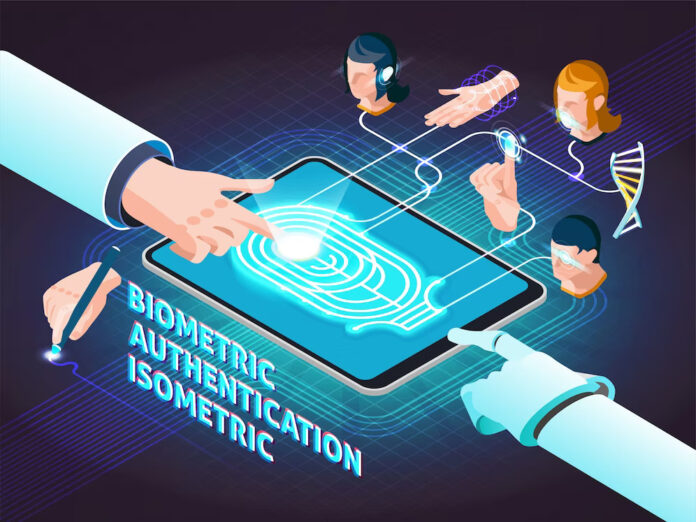Introduction
Biometric authentication is a type of authentication technology that relies on physiological or behavioral traits to verify an individual’s identity. It is becoming increasingly popular in technology, offering high security and convenience. In this article, we will discuss the risks and rewards of using biometric authentication and explore the potential implications of its use.
What is Biometric Authentication?
A biometric authentication is a form of identity verification that uses a person’s physical or behavioral characteristics to confirm their identity. It is becoming more widely used in the public and private sectors, providing high security and convenience. examples
Benefits of Biometric Authentication
Biometric authentication provides an advantage compared to conventional verification modes, such as secrets and numerical codes. The most significant benefit is that biometric authentication is much more secure than traditional methods, as it is nearly impossible to replicate or steal a person’s unique biometric data. Additionally, biometric authentication is more convenient than traditional methods, as users no longer have to remember passwords or PINs.
Risks of Biometric Authentication
Despite the many benefits of biometric authentication, some potential risks are associated with its use. The primary risk is that biometric data can be stolen and used to access protected systems and data. Additionally, biometric authentication is not infallible and can be confused by certain factors, such as changes in the environment or a person’s physical state.
Data Security Concerns
One of the primary worries related to biometric authentication is protecting the amassed and kept-away info. If the information isn’t safely put away and ensured, it may be easily gotten to by unapproved people. Moreover, if the information is held in a concentrated area, it can be effectively undermined.
Privacy Implications
Another potential risk associated with biometric authentication is the potential for privacy violations. As biometric authentication relies on collecting personal data, there is a risk that this data could be used for unauthorized purposes, such as profiling or marketing. Additionally, there is a risk that biometric data could be used to track a person’s movements or activities.
Regulatory Implications
In addition to the perils linked with biometric authentication, there are also likely regulatory repercussions. For example, the European Union’s General Data Protection Regulation (GDPR) necessitates businesses to take appropriate steps to secure people’s private information. Consequently, businesses must guarantee that the biometric information they accumulate is securely retained and guarded. Furthermore, businesses must guarantee that they acquire the agreement of the individuals whose data they are harvesting and that they are lucid about how the data will be used.
Ethical Considerations
When pondering biometric authentication, it is likewise fundamental to mull over the moral ramifications. Biometric validation can be utilized to make a more secure condition. However, it can likewise be utilized to make a domain of surveillance and control. Additionally, biometric authentication can separate certain people, such as those with inabilities or remarkable physical characteristics.
The Future of Biometric Authentication
As cutting-edge authentication technology advances, it will become more commonplace and accepted. Biometric authentication can offer superior security and convenience and will eventually become the go-to authentication technique. Furthermore, new and enhanced forms of biometric authentication will be created, such as genotypic authentication and brainwave authentication.
Implementing biometric authentication is anticipated to be more stringently managed in the future. As technology becomes commonplace, it is foreseeable that governments will establish protocols to protect the confidentiality and safety of persons. Furthermore, firms will probably be obligated to take additional precautions to safeguard the information they acquire and store.
Overall, biometric authentication can supply a great level of protection and practicality. Notwithstanding, it is essential to contemplate the potential perils and effects before determining if to embrace it. Moreover, enterprises should guarantee that they obey pertinent statutes and take appropriate steps to secure the confidential information of persons.
Conclusion
Biometric authentication offers high security and convenience, but there are also some potential risks and ethical considerations associated with its use. Therefore, considering these dangers and outcomes is critical before deciding whether to employ biometric confirmation. Furthermore, organizations should guarantee that they adhere to pertinent guidelines and take appropriate steps to secure people’s private data.















